What the latest Apple iOS 14 update means for marketers everywhere
This episode is a discussion about what marketers can do to adapt to the latest iOS 14 update that affects how pixels are implemented on Apple devices.
LINKS
- Preparing our partners for iOS 14: Mobile Web Advertising [Facebook]
- Episode 289: Digging Deeper: What You Can Do Right Now to Prepare for iOS 14 [DigitalMarketer]
- iOS14 Guidance for Facebook Advertisers [Depesh Mandalia]
- Helping partners prepare for Apple’s ATT policy updates [Google]
—
Hosted by Alex Cleanthous from Webprofits. Guest appearance by Justin Rondeau from Recess.io, TruConversion and DigitalMarketer.
TRANSCRIPT
Justin Rondeau:
I remember the first time I heard someone go, “Yeah, you just throw it in there and let Facebook figure it out.” I’m like, “Ooh. You know that’s going to change.” Even people in the organic space, they don’t go like, “Let’s let Google figure it out.” They try to, at least, get an understanding of a cause and effect. Facebook got to a point where it’s like, “No. It says it’s a buck right now, and they figured it all out for me. And it’s great.” And that, it was great for now. But the reaction to that type of advertising, and that type of granularity, is what’s caused this to change. We got too lazy, and the machines got too powerful. And you know what? Now we need to get back to some basics there on the stuff that actually works and just be better marketers
Alex Cleanthous:
Today we’re talking with Justin Rondeau about the latest changes with Apple’s iOS 14. And this is a new marketing series from Webprofits on what you need to know in the game. Justin is the general manager of Scalable Labs, which creates software that powers the systems behind Digital Marketer and Scalable.co, and has launched and manages software projects like Recess.io, TruConversion, and Proxio. And just quickly before we get started, make sure to go ahead and hit that subscribe button so that you get the latest episodes as soon as they’re released. Let’s get into it. Welcome back, Justin.
Justin Rondeau:
Thanks for having me back, Alex. It’s always a lot of fun to come on here and chat through all this stuff that’s going on with marketing because we know everything changes for marketers all the time.
Yeah. And that’s going to be the big lesson out of this whole discussion, I think, is around the one constant is that there’s always change. And so, this is just another change. But we’ll get into that shortly. Super high level. So what’s this conversation about? So Apple, with their new iOS 14, is changing how they allow companies to track their users. Before, the pixel would be activated by default, and people would have to opt-out. Now people are having to opt-in, which is changing the game, mostly for Facebook and programmatic, but across the board for any platform that requires a pixel to re-target.
Alex Cleanthous:
And so the biggest, I guess, company against this change is Facebook because they are the pixel masters. They’re the pixel masters. And so they’ve gone pretty hard in print, and pretty hard across the board, trying to damage control basically what they say is going to have a huge impact in their ad platform. In fact, they say that this change could render the audience network so ineffective that it may not make sense to offer it for iPhones. And some of their tests have shown a 50% loss in revenue across the audience network because of this change.
There are a lot more parts to the change, but that’s the high level, that there’s a change in how the pixel is being activated, where people have to actually opt-in. And the conversation today is what can we do about it, right? Because there are a lot of conversations happening online right now. And there’s a lot of challenges that companies are trying to solve. And it’s different, depending on the type of company that you are. So, without further ado, that’s the start. That’s the intro. Justin, what do you think this is going to mean for advertisers?
Justin Rondeau:
Man, well for advertisers, it’s kind of a big deal. More than kind of, because advertisers have gotten lazy lately, where they’ve gotten so used to how easy it is to dig into audiences on Facebook, and to really create these really, really in-depth retargeting audiences, and building into there. But when you talk about marketers, or businesses as a whole. So for advertisers, yeah, it’s going to be a little bit more difficult for them because that’s their bread and butter. But the fact of the matter is, as a business, for most businesses, I think it’s going to impact direct-to-consumer businesses way more than anybody else.
But from a business perspective, I’m actually not terribly worried about this change, for a few reasons. One, it’s happening to everybody. This isn’t a case, if you’ve been paying attention to the stuff going on in the States today, with the WallStreetBet stuff, and the GameStop stock. In that scenario, they’re having a game that’s kind of rigged, where you have people that are playing by the rules, but it’s only working for some of the people. But in this case, this is happening across the board. So we’re all in it, which I think maybe that’s the best place to take any solace, or that’s your silver lining, that we’re all starting from square one here.
And the reason, again, why I’m not as worried from a business perspective, especially in my industry. From a DTC, direct to consumer stuff, I would be a little shook here. But in the B2B space, especially where I’m at, I’m not terribly worried because we’ve been here before. Facebook wasn’t the only way for us to get in front of audiences. There’s a lot of tried and true methods when it comes to developing funnels, and even just coming up with almost some ad hoc tracking that you can do that makes it easier to come up with attribution. Anybody who knows me knows that I think the attribution game as a whole has been a little willy nilly as it stands.
And Facebook’s even been making changes to that where their view throughs were going to drop anyway. This isn’t the reason why they’re making all the changes. This is the cause for a few changes, specifically when it comes to opting in versus opting out. But they were already starting to do some of this stuff. So this was going to be a reality. It was going to be a reality. And I think how we have to look at it is, yep, we’re going to have some real implications here. Specifically, I think one of the interesting ones is how triggered events are going to work in there, where you had to have a priority set of triggered events, and you can only use one of those. So, that gets a little tricky. There are like eight to choose from. And based on the priority, it’s going to use that one. So, that’s a little different.
But, I mean, the rules change all the time in the game. And they always change in the marketing world. And this is no different. I think we’ve seen a lot of skies falling. Even on digitalmarketer.com, our ad buyer was “shook” by this. If you, the article there, you can see there’s an actual, that’s how he makes his money. But, as I was looking at it, I’m like, “Man, we know how to handle this. We know those old tricks from back in the day when it wasn’t as easy to use Facebook. We know that stuff.”
Alex Cleanthous:
Well look, I think that’s a fantastic point to start from. One of the things is that we need to go back to some of the more traditional old school approaches to marketing, and we’ll get to that soon. I think the biggest effect for Facebook advertisers is, Facebook kind of made things easy. Their algorithms were super intelligent. And, through pixels, and predictive analytics, and the advanced stuff that they’re doing there, they could really help you create a funnel that was in Facebook. And you could use retargeting events at certain stages to really maximize the ROI. And now that’s going to be less. Now it’s going to be less.
What are some of the things that people can do? Let’s go straight to that. And this is for Facebook specifically. And we’ll talk about search next. I don’t think it has that much effect on search. But what can people do from the Facebook perspective? Because that’s the biggest conversation right now online. It’s Facebook, oh my God, Facebook is going to be worth half as much in terms of our ROI and ROAS and so on. So what can people start to do now?
Justin Rondeau:
Yeah, The first thing I do goes back to how we used to do attribution seven years ago or more, where we would just create dedicated landing pages for the particular campaigns that we’re doing. That you’re not going to get, if you lose people within the session in those, but you’re going to get more of a direct understanding of the conversion rate there. So you’ll get in funnel stats only. But that’s better than nothing or better than guessing, in those cases. Generally, what I do, so how I do this, and this is actually how I’m going be doing this. So this is like a swipe from my playbook as we’re running into this. We use a tool for our landing pages, and really just our content management system, we use Elementor. And so what I’ll end up doing is creating a basic landing page template. I’ll just redo our landing pages into a specific template. Then I can just make all the global changes there. And then just start publishing a bunch of different ones, as fit for campaigns, as I need them. That’s how I’m going to start by attacking this.
It’s not a terrible amount of extra work at that point. And if you’re using a system where you can make global changes, then you don’t have to worry about, Oh, this one landing page might have a different offer, or we’ve changed things or anything like that. So that’s the first thing I’m going to do at some of our software companies, for the different lead magnets we’ve put together, and our different offerings. That’ll give us a better perspective of, Okay, so this is our landing page, FB campaign. Come up with a naming convention for those, going that route. So we can get an idea of direct funnel attribution from those campaigns. So, that’s the first thing I’m going to do.
Alex Cleanthous:
Yeah. So, I think the first one is lead magnets. I think there’s going to be a shift from third-party data to first-party data. So you just want to get their emails, basically. That’s the summary of that fancy statement, from third-party to first-party. Just get their details, their phone number, their email, because then you can still make custom audiences. So you can still upload. It’s just the pixel, the pixel information, the anonymized information is going to become harder to get. But that doesn’t mean that you cannot get their emails. So get their emails.
And that’s something that we’ve always been focusing on here in terms of our clients at Webprofits. We know because we’ve been around for a long time. I’m old now compared to the marketers that are coming into the industry now. So I’ve been around since 2001. You cannot trust any third party platform with your company’s assets. And the only asset that you have, and I’ve said this about Instagram followers, about Facebook organic reach, about organic rankings, that’s somebody else’s asset. The only asset which you have is the database, the email database, right? That’s what it is. The customer database. Now, it’s possible to segment it. It’s possible to be really sophisticated with it. But that’s what you’ve got. And you can still do that. I think that’s the biggest one, to focus on capturing emails, however you do it, because then you can re-target them. And that’s the biggest one. That’s the biggest challenge right now.
So one strategy which I think is going to be affected is advertising a piece of content that doesn’t have any CTA, and then being able to re-target people that see that content. Unless it’s a video that you upload straight to Facebook, where you don’t need a pixel. That strategy is going to become less. And so that’s where now you’ll need content upgrades. And so you can still advertise that content, but focus on capturing emails from that content. I think that’s like basic marketing. That’s basic marketing.
Justin Rondeau:
The fundamental people have moved away from, for too long, because we’ve been able to say, Oh, Hey. Well, we still have the ability to re-target these people accurately. And you can set other parameters. There’s a lot of different things you could do of like, “Hey, let’s make sure to only re-target people who hit the page for 15 seconds or more, blah, blah, blah.” You can do all that stuff. It’s going to be harder. You’re not going to be able to do that stuff, in those regards anymore. You’re not going to have the accuracy, and it’s just not going to… And with the bulk of Facebook traffic coming from mobile, and if it’s mobile that’s going to be required to opt-in, that’s where you’re going to have a really bad time. But yeah, it’s just basic strategies there.
And I mean, the move, no one should be surprised. Actually, I want to go back to what you were saying about third-party and first-party data. If you’re so overly reliant on a particular channel, you’re trying to build a house on rented land. That is essentially what you’ve done. And you can’t build your business off of that. So, first-party data is going to be crucial. And you’d be surprised the amount of information people will be willing to give you, if you have a level of value that you’re providing.
And so, there’s no wonder why the resurgence of the email newsletter has been happening. People are trying to find low touch ways to get in front of people. They want more at bats because the fact of the matter is, these types of regulations, people have seen this coming. This isn’t a big surprise. I mean, we saw this coming with the initial cookie law changes that happened back in 2011. We’ve seen this even with anything that was GDPR related. Now, this just went way down, like way more hardcore on that. But this won’t be the end. This is affecting Facebook significantly right now, but who remembers when Google pulled out all of your keyword data when they created the Google account? That screwed a lot of people over. But again, what I said at the beginning was, when these types of things happened, it screws everybody over. The world’s not on fire, the rules have just changed. And it’s just a matter of how you react to those things.
And in this case, Alex is completely right, and I think distilled this down really clearly. It’s going to come down to, you’re going to have to have a blitz to first-party data, and really asking yourself, at that stage of the customer value journey, if it’s just a piece of content there, what’s your CTA on that page? Is it visible? How visible? How often do they see that? What’s the conversion rate on that? And then really starting to dig in there. And then making sure your ascension campaigns and everything on your email marketing’s tightened up. Email is going to become more and more important than ever, which is crazy to say because people [crosstalk 00:14:53] been dying.
Alex Cleanthous:
What I’d like to say on this point as well, Justin, because I’ve been here 20 plus years. I’ve heard that email is dying for 15 years right now. It was dying when social media was around, then it was dying with Facebook messenger and all that type of jazz because everyone was going to be in apps. And this change is really solidifying email as a requirement. It’s really hard to now engage with your audience unless you have their details. And if you have their details, why pay for ads if you don’t need to? You should just be smarter in terms of email sequences and behavioral targeting and stuff like that across your website. But all that, the fancy AI algorithms, like in the Facebook arsenal and stuff, and the Google arsenal, that’s all fantastic. But it has maybe made a few people a little bit lazy in terms of their marketing approach.
And, to your point earlier, how do you add value quickly? In terms of the B2B space, you need to capture emails. That’s pretty much the simple answer to this. Capture emails. And if you capture emails, then you can do it. But what about consumers? What about consumer-led campaigns? What about E-commerce, where you can re-target the add to carts on Facebook? That was an awesome strategy. That really performed well. What are some thoughts would you put forward to e-commerce companies and companies where consumers aren’t really willing to give up their email so easily as before?
Justin Rondeau:
One thing you can do here, and hashtag, not a lawyer. So, look into the legality of this one. There are two things you could try. One is, using software. But actually, I don’t even know. It might not work anymore. I don’t know. Anyways, but the first thing I’d do is, one of the things we, at TruConversion, when we have someone that fills out our order form for our smart funnels tool, once they put their email in, we pass that into our CRM. In our terms of service we say like, “Hey, we’re able to use this for remarketing and blah, blah, blah, blah.” And then if you’re able to pull that data without them submitting the form, there are tools that can do that. And if you have that in your terms. Again, not a lawyer. Not advice from a law perspective here, but from a marketing perspective. If you’re looking good there, you could use that to build up audiences for retargeting at the add to cart, if you know that they didn’t purchase.
That’s a strategy that should work just fine. Again, check with your departments, if you’re allowed to actually do that, and for whatever region you’re in. I know, in the States, we’re fine with doing that. That’s a tactic I’ve done where you still can do that. You could get that going. But consumer brands, I don’t know what’s going to, that one is the one that I’m like, [makes crashing sound with his mouth]. And that’s why I think I’m so calm talking about my stuff because I’m looking at that, I’m like, “That’s a scary one.” I remember, and this was during the time, we were probably like five years into doing Traffic and Conversion Summit. And we launched another summit called Content and Commerce. So the idea was that how important content was going to be for commerce in order to build up the brand, and then being able to have those additional sales and those things. That’s one of our other portfolios, which we worked so hard to build.
And the premise made a lot of sense then. But I think it was too early because of what was going on, with Facebook and those things, it got really easy just to sell stuff. The direct to consumer brands could segment super, super deep, could re-target all over the place. What’s crazy is that you had people on Instagram go after industries that were so protected, and people couldn’t break into, but then they were able to do it. Like, Oh, you’re going to jump into the male shoe brand. You’re going to create male shoes. And Allbirds showed up. Like, Whoa. And they just changed the game because they were digital-first. And they were able to understand the importance of retargeting, the importance of building out your different audiences and following them. Following them everywhere.
That’s a big hit. And that’s one of those things I wish I had a better answer for, but I’m just not the consumer type. I’ve worked with some B2C brands. But I’m primarily a B2B focused person, B2B, and SaaS. But, for me when I see that, I think the opportunity then comes back to, and it’s weird saying this, it comes back to that content side of things. And you might have to start looking at media brands, and partnerships with media brands, and those types of things, to get your message out there. I think it is going to be a look back, old partnership deals, and those types of things, to make sure that you’re relevant, that you have something to get your name known there.
And then I think it’s going to just turn into a rush to search again. I think Google search, and display, and those things might actually be what ends up happening for a while, until that gets stamped out. It’s just going to happen. For consumer brands, I wish I had more tactical things for you right now. But what’s going to be happening here is like, go talk to someone who did that 10 years ago. I guess they’re going to be the ones that are going to have the strategies to actually go like, “Man, you got to actually go back to some of these basics here.” And I don’t want to pee in your pocket and tell you it’s raining about this thing. I don’t have enough data points on the consumer.
Alex Cleanthous:
Yeah. Some of the things that we do here at Webprofits is, there’s this thing called the viral competition, where you give away something that will attract people that fit your audience type. So, if you sell shoes, you should be giving away shoes. Or if you sell, I’m going to stop with the examples because I’m not very good with clever [inaudible 00:21:07], so I’m only going to come up with one. And so you create a competition that the prize is so good that people can’t help but to enter and share, because if they share, they get more entries. Now, if the prize is good, now you can advertise this competition. So we see performance on these things because it’s consumer stuff.
We have competitions in the B2B space, which also works. But in the consumer space, we get emails sometimes from five to 20 cents on Facebook ads from the first touch. That is without basically any retargeting. If the competition, if the price is right, the page is a converting page, which is not too hard to do. And the viral component is simple. You can get 50,000 emails for 10 grand. And now those emails, you can start to segment them. And now you can start to actually upload those segments to Facebook, start to test them. And this is the big one now. Before, you could just let the Facebook algorithm figure it out. Here, let me just do a broad audience and I’ll just create a hundred of them or whatever. And the algorithm would just figure it out.
I think now, it’s going to go back to how it was in the olden days, like 10 years ago, whatever it was. But back in the day, I’ll say, where you just have to be really tight with your audiences upfront. You have to really know who they are. And you need to really create strategies or tactics or funnels that capture their details. And then you can start to compare them. You can see the cost per acquisition of a new email for this segment versus that segment. And then you can track that through your CRM, basically all the way to the sale. And it’s not going to be as easy. But that’s good. I love when there are changes like this because this is where you can get extraordinary performance because everyone is so slow to move. If you can be the one to move first, and instead of playing to not lose, you play to win. You just have to work harder and do the things that other people aren’t prepared to do, faster than them. That’s where you can win right now. I love when these things change.
I remember back in the day when Google clicks were five cents, and then they introduced quality score. And immediately, it was a dollar to two dollars a click. And everyone was like, “Oh, well, Google Ads is finished now.” But it wasn’t. It wasn’t. It’s the same with organic reach was dead, so spend money on Facebook ads then. This is great. Just forget organic reach, spend money on Facebook ads. Cool. This is going to change. Don’t sit there thinking, what’s going to happen? What can you do now to already start to change your strategy, because you still have the pixel right now? The pixel is still going to work until all the phones upgrade (and) until everybody starts to be asked the question or not. You’ve got time. Start sooner.
Programmatic advertising is the other consumer-focused ad platform, which is very advanced, but it’s very much pixel-based. So I am not a true expert in programmatic. So I can’t talk to it at a level of expertise that I’d like to. But simply put, it’s going to become harder for programmatic advertisers who rely on third party data. The first-party data stuff? Fine. But they’re not going to know who’s seeing, who’s engaging, if there are no pixels showing it. And so, there’s going to be some pretty big changes happening in the consumer markets, and in consumer advertising across the board. And so, what would you say, Justin? Are you excited about this change? Maybe we should finish it on the positives. What are you excited about? What are you pumped about, or whatever?
Justin Rondeau:
[inaudible 00:25:16] this one thing. The attribution debate is over. Over. I don’t have to hear it anymore. No more articles about (it), look at this attribution window. Forget it. Forget it. It’s been stupid. And now this is more of a reason for why we don’t have to have that conversation. But that’s kind of my joking one there. But I am somewhat serious. Honestly, I think this is going to be better for consumers, and better for businesses overall. I think this is going to turn into, the best offers will win. And I wish I could say that was my initial insight with this. I was at dinner with our head of growth at our companies. He and I were chatting about this. And that was the first thing he said. And it just resonated with me, like yeah, you’re right. It’s back to, the best offers are going to have to win.And I really, really like what you said too, Alex, where you’re just like, “Hey, put in the work that people either aren’t able to, or aren’t willing to do, and you’re going to win in this case.” I think we’re going to see even more rough and tumble spreadsheets, and those types of things, and multiple landing pages, and different ascension campaigns, and those things. But I’m just excited to see people do some direct response marketing again. I think it’s going to be a cool rise for that. And it’s going to get people focused on the stuff that actually matters, and that’s going to actually add value to consumers, businesses, and so on. So I think it’s a move in the right direction. We got too reliant on the machine. I remember the first time I heard someone go, “Yeah, you just throw it in there and let Facebook figure it out.” I’m like, “Ooh. You know that’s going to change. Even people in the organic space — they don’t go, “Let’s let Google figure it out.” They try to, at least, get an understanding of a cause and effect.
Facebook got to a point where it’s like, “No, it says it’s a buck right now. And they figured it all out for me. And it’s great.” And that, it was great for now. But the reaction to that type of advertising, and that type of granularity, is what’s caused this to change. We got too lazy. And the machines got too powerful. And you know what? Now we need to get back to some basics there on the stuff that actually works and just be better marketers, and provide a service, a product, or anything that people actually give a damn about. So, that’s what I’m excited about.
Alex Cleanthous:
Yeah. From my perspective, I think, number one, you can probably save on some advertising spend right now because you’re not going to have to spend so much on retargeting as much anymore. And then now, you might have to spend a bit more on staffing to do the work, to think about it. But the return should be better because it’s harder. And so, it requires a certain level of optimization and looking at it constantly, to your point, to test offers, and so on. And really, the big one is just to grow your email database. That’s just the big, big summary. And I think the biggest one is, never put all your eggs in one basket ever. We’ve always been a company that is all about the multi-channel or the omnichannel approach because we’ve been around long enough that things are always changing. And this is just another example of that.
And so, we’re super excited about this change because, at every point, because this happens every two or three years, something that changes basically everything, and the world’s going to end. But that’s when you can actually get some extraordinary growth because now all of the people that don’t know what they’re doing, as well as you, they’re not going to be able to survive this. They’re not going to be able to afford it. They’re probably not going to be able to create the value that you will need in this more challenging world. And that’s an opportunity that I think everybody that is a serious marketer, and is serious about growth, should be very excited about.
Justin Rondeau:
Yeah, well said. Well said. And I can’t believe I forgot about the ad cost thing because [inaudible 00:29:43] right there too.
Alex Cleanthous:
People would just spend so much money because they would think of the attribution, like what you said before. Well, they’re looking at the content, that must mean that’s helping the brand. But they may not have been the right audience looking at the content. You’re just letting Facebook’s algorithm figure it out for you. It’s pretty smart. But hey, you don’t have that choice anymore. So welcome to the new era. Stage seven. Phase 12. I don’t know what it is. I don’t even know anymore.
Justin, thanks so much for coming on this chat. I look forward to having chats like this about other topical subjects. This is the first one that is like this. It’s where we have a conversation about something that is happening in the media right now, that’s happening across the industry right now. There’s going to be more. So I look forward to speaking to you again, mate.
Justin Rondeau:
Awesome. Me too, man.
Alex Cleanthous:
Awesome. Speak to you soon, man.





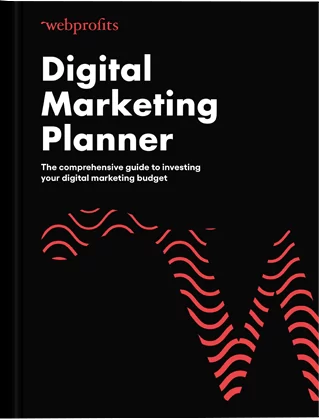
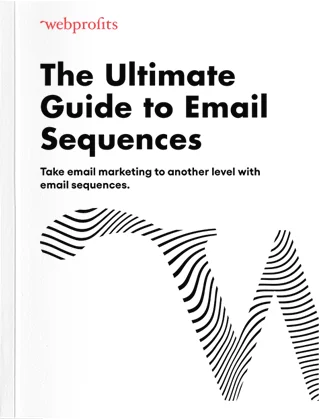
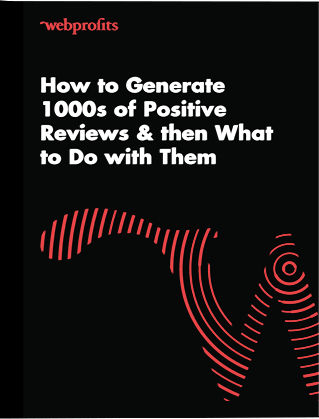
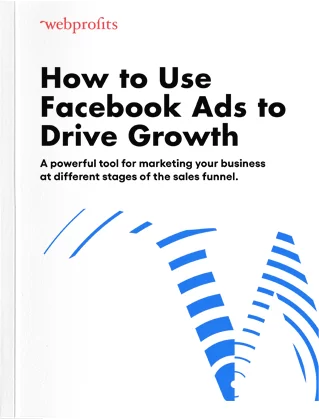
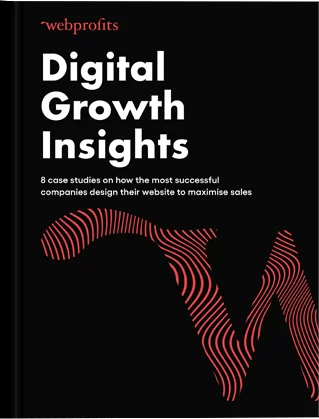
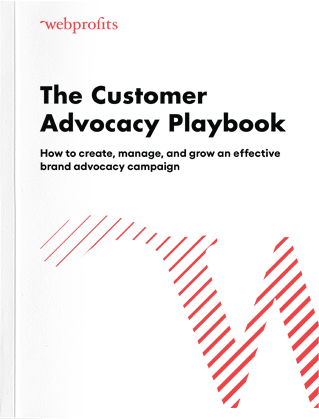


The only thing I want to add to this conversation is Why. Why did Apple make this move, yes profit always comes into play, but they are smart enough to know there’s a consumer need.
With programs like Social Dilemma, consumers are more informed about their data tracking. And they’re not happy. When you look at your own marketing messages and see it from customers perspectives you can change the language…and yes follow your recommendations on channels.
Hey Justin,
From a b2C ecommerce perspective the data science of your email platform is going to be more important than ever. Klaviyo’s ability to predict and segment people by stage of their journey is critical. Also their predictive analytics can forecast when they are most likely to purchase again and instead of a pixel you can use a custom audience of people expected to purchase in the next 14 days. Hope this helps.
Regards
Ant